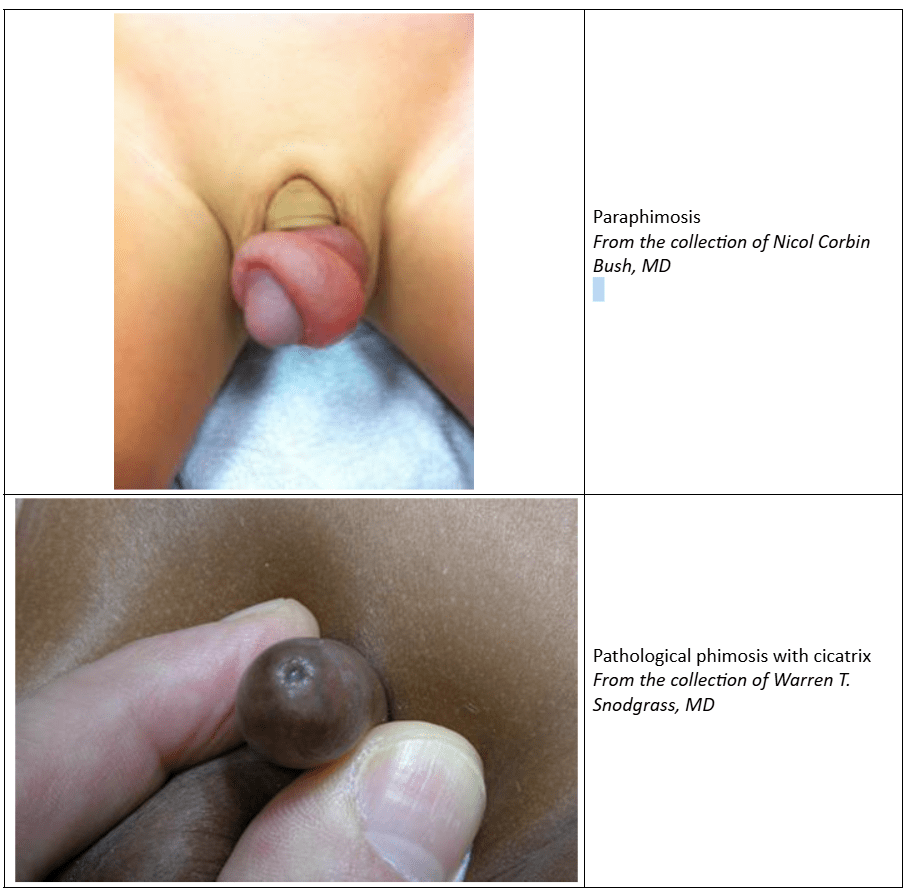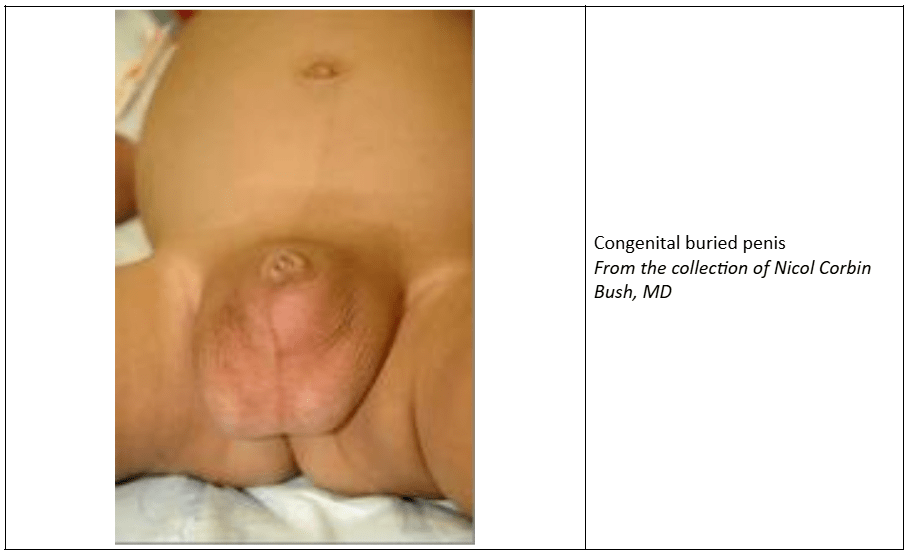Summary
Anatomical penile abnormalities are conditions affecting the external genitalia of males, which can be congenital (present at birth) or acquired later in life. Some conditions may require urgent medical attention, while others can be managed with medical treatment or surgery. Early diagnosis and treatment are essential to prevent long-term consequences such as sexual dysfunction or cosmetic deformities.
Key conditions include phimosis, paraphimosis, penile curvature, hypospadias, and buried penis, each of which varies in severity and treatment options.
Types of Penile Abnormalities
- Phimosis
- Congenital (Physiological): Normal in children under 3 years and may resolve with age.
- Acquired (Pathological): Occurs in post-pubertal males due to scarring from infection or inflammation, or from forced retraction of the foreskin.
- Paraphimosis
- Occurs when the foreskin is retracted behind the glans penis and cannot be returned to its normal position, potentially impairing blood flow and causing swelling.
- Penile Curvature (Congenital Chordee)
- A condition where the penis is curved, typically ventrally or laterally. Rarely, dorsal curvature is observed. This can occur with conditions like hypospadias.
- Hypospadias
- A birth defect where the urethra opens abnormally on the underside of the penis. It may vary from mild (distal form) to severe (proximal form). Other associated abnormalities may include incomplete prepuce, penile curvature, and cleft scrotum.
- Buried Penis
- A condition where a normally developed penis is hidden beneath pre-pubic or scrotal fat, making it appear short. In newborns, this can be associated with congenital megaprepuce, leading to urination difficulties and visible ballooning of the skin.
Management and Treatment
Treatment approaches vary depending on the condition:
- Phimosis: In many cases, it resolves naturally in children under 3. For pathological phimosis, topical steroids or surgical interventions (such as circumcision) may be required.
- Paraphimosis: Requires urgent reduction to avoid complications. If untreated, it can lead to necrosis.
- Penile Curvature: May require surgical correction, especially if the curvature interferes with function.
- Hypospadias: Surgical repair is typically performed, especially for more severe forms, to reconstruct the urethra and correct any associated deformities.
- Buried Penis: Management involves weight reduction if related to obesity or surgical intervention in severe cases, especially if the condition causes urinary difficulties.
Importance of Timely Intervention
Failure to address anatomical penile abnormalities promptly can result in long-term consequences, including sexual dysfunction, cosmetic deformity, and psychosocial issues. Regular follow-up is essential to monitor for potential complications, especially in cases requiring surgery or reconstructive procedures.


History and Exam
Key diagnostic factor
- Presence of risk factors
- Newborn and toddler age
- Abnormal location of urethra
- Incomplete prepuce
Other diagnostic factor
- Forced retraction of foreskin
- Dyspareunia
- Recent penile trauma
- History of balanitis or balanoposthitis
Risk factors
- Uncircumcised penis (paraphimosis)
- Indwelling urinary catheter (paraphimosis)
- Parental unawareness (phimosis)
- Balanitis xerotica obliterans (phimosis)
Diagnostic Investigations
1st investigations to order
- Clinical diagnosis

